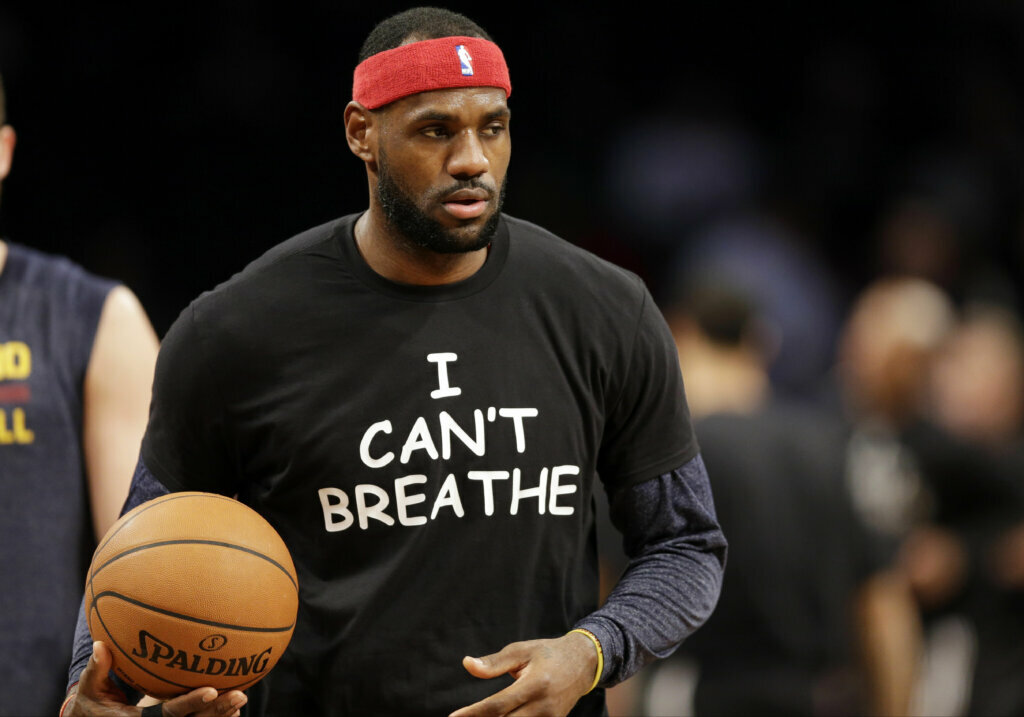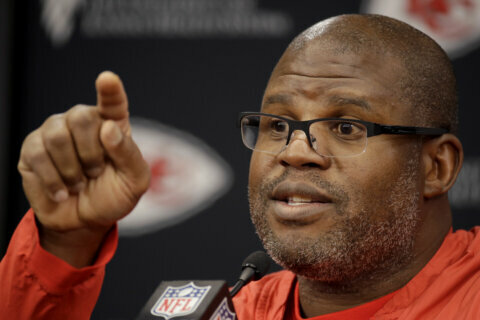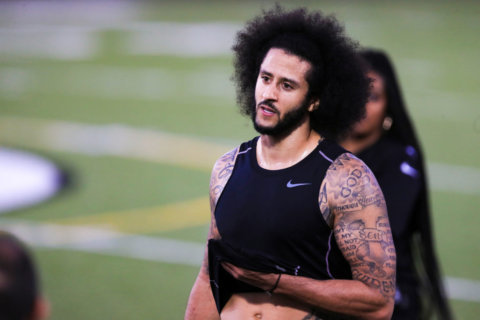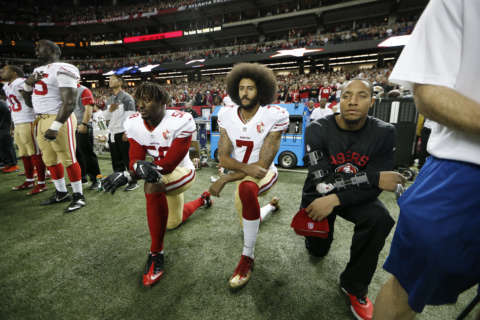“Stick to sports.”
“Shut up and dribble.”
These are some of the worst, and incredibly tired, statements uttered by small-minded people who don’t like when an athlete says something pertaining to social or political matters the hearer doesn’t agree with — as if athletes are lesser members of our community that don’t deserve to express their thoughts and feelings.
If “sticking to sports” was ever really an option, it died on a Minneapolis street last week alongside George Floyd, a black man who died under police custody for a petty crime, whose brutal killing was then broadcasted to the rest of the world.
Here’s how a similar scenario played out with a white person:
George Floyd and I were both arrested for allegedly spending a counterfeit $20 bill. For George Floyd, a man my age, with two kids, it was a death sentence. For me, it is a story I sometimes tell at parties. That, my friends, is White privilege.
— Mark D. McCoy (@m_d_mccoy) June 1, 2020
These clearly disproportionate outcomes are exactly what Colin Kaepernick was talking about when he silently knelt during the national anthem in 2016. It had nothing to do with the flag or the military. It was a plea for authorities to stop killing the people of color they’re sworn to protect.
But as Kaepernick and other athletes knelt, America not only failed to listen, but many shouted them down with this phrase: “Stick to sports.”
LeBron James — who has spoken out on social issues throughout his career and was famously told to “shut up and dribble” by conservative media personality Laura Ingraham — wore this T-shirt in 2014, and sadly, it’s every bit as relevant in 2020.

The valuing of black people’s lives should be considered an inherently social issue, not a political one as it’s portrayed. And yet, “Black Lives Matter” is somehow controversial, even though its literal meaning should be considered as true as it is simplistic. When NFL players knelt during the national anthem, that got misconstrued from the message of highlighting injustices in America, as if the marginalized shouldn’t speak out when they are being killed.
As the anthem controversy died down, the burning issue surrounding the resistance raged on. Floyd’s murder happened before we could finish shedding tears for Breonna Taylor.
So, the time for kneeling and T-shirts is over. Athletes such as Jaylen Brown, Malcolm Brogdon and Deshaun Watson aren’t tweeting from their basements; they’re on the front lines, speaking out.
Malcolm Brogdon: “I got a grandfather who marched next to Dr. King in the 60’s. He was amazing and he would be proud to see us all here.”
He added “Jaylen, man, has led this charge. I’m proud of him. We need more leaders.” pic.twitter.com/3r3qsojB45
— Chris Grenham (@chrisgrenham) May 31, 2020
🖤🙏🏾 For the Floyd Family! https://t.co/5Q0cNuqvAK
— Deshaun Watson (@deshaunwatson) June 3, 2020
This fight isn’t just for black athletes either. Racism is a problem for everyone not directly benefiting from it. That’s why white NFL quarterbacks joined the fight last week, at least in word. Carson Wentz, Joe Burrow, Ryan Tannehill, Derek Carr and even Tom Brady (who happens to be friends with the man stoking the protest flames) have all gone on record.
We’re still months away from seeing whether they do something demonstrative such as kneel during the national anthem, but Richard Sherman told Sports Illustrated that it’s already a step in the right direction.
“I’m impressed with the white QBs speaking up because those are voices that carry different weight than the black voices for some people,” Sherman told Albert Breer on Sports Illustrated. “Which means the people who refuse to listen to a black athlete’s perspective will hear the same thing said from a white athlete, but receive the message much differently.”
It’s somewhat promising that entire sports leagues and individual teams have also issued statements about the Floyd killing, some of them significantly more pointed than we’ve ever seen before.
Michael Jordan, whose deafening silence on social matters was perhaps his greatest criticism as a player, was among the NBA owners to speak out last week.
“I am deeply saddened, truly pained and plain angry,” Jordan’s statement said. “I see and feel everyone’s pain, outrage and frustration. I stand with those who are calling out the ingrained racism and violence toward people of color in our country. We have had enough.”
The Black Lives Matter movement received more help than ever from the sports world on Tuesday, when teams from several leagues all over the globe participated in “Blackout Tuesday” on social media, including those in the D.C.-Baltimore area.
Black Lives Matter #BlackoutTuesday#WNBATogether pic.twitter.com/8mw88vkkYB
— Washington Mystics (@WashMystics) June 2, 2020
Black Lives Matter#BlackOutTuesday pic.twitter.com/F5FXpugdUM
— dcunited (@dcunited) June 2, 2020
Black Lives Matter.
— Baltimore Orioles (@Orioles) June 2, 2020
The Nationals, Capitals, and yes, even the Redskins (who took the appropriate amount of flak for literally profiting off racism) all took part in Blackout Tuesday. The Ravens took it a step further when owner Steve Bisciotti pledged $1 million to social justice reform.
If that sounds familiar, it should. Kaepernick has donated over $1 million to a variety of charities during and since his NFL career, and recently contributed $100,000 to coronavirus relief in the hardest-hit communities despite being without an NFL paycheck for nearly four years.
Speaking of which, even the NFL itself — the same league that blackballed Kaepernick for his peaceful resistance and clearly had impure intentions for his staged workout last year — released a statement in support of change, although their transparent and flimsy attempt at joining the national discourse was panned by a number of players.
But the reality of the fight for equality is people of color need allies within the establishment to speak up and advocate for the cause. Some of these allies will be imperfect. The message will sometimes come from flawed people emotionally exhausted from fighting for what are supposed be unalienable rights for all American people.
As I said to a close friend and fellow journalist in an op ed last week, change starts with listening. Racism isn’t imagined. It’s not some “card” minorities play to excuse a lack of achievement. It’s an insidious, and very real, monster that’s been woven into the fabric of this country for hundreds of years.
So, instead of telling athletes of color to stay within the white lines, ask them what it is they’re fighting for. Ask them about their experiences. Ask them what a better world looks like to them.
Because everyone, including athletes of all races and colors, has to band together and change this country for the better, or there will be nothing left to save.








